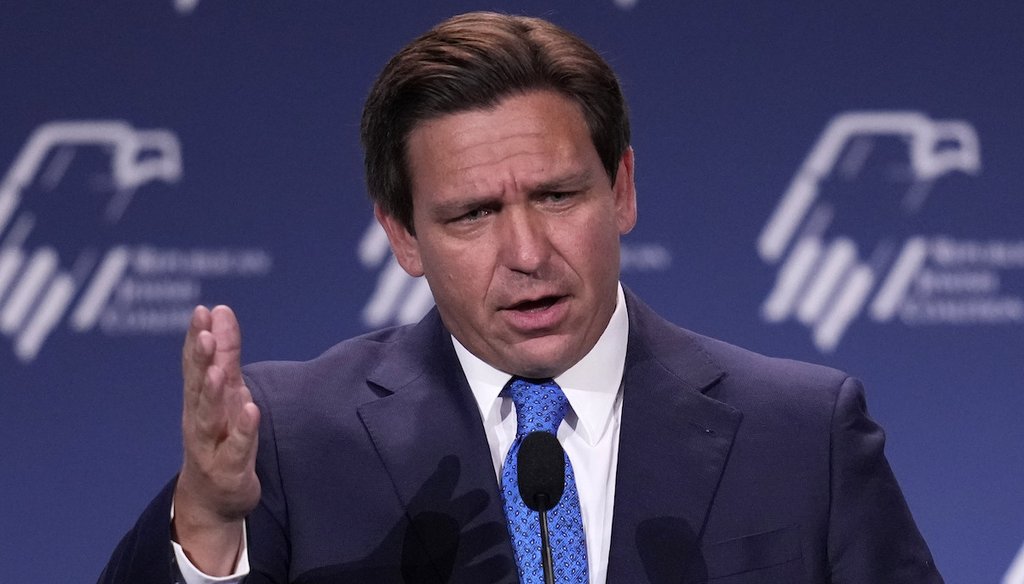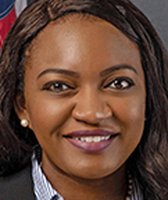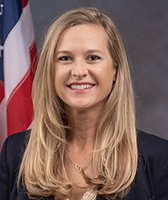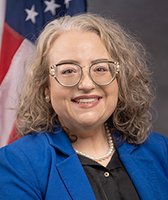Stand up for the facts!
Our only agenda is to publish the truth so you can be an informed participant in democracy.
We need your help.
I would like to contribute

Florida Gov. Ron DeSantis speaks at the annual leadership meeting of the Republican Jewish Coalition, Nov. 19, 2022, in Las Vegas. (AP)
Amid the furor over Florida’s rejection of a new high school Advanced Placement course on Black studies, three talking points emerged from both sides of the political aisle.
One, from Gov. Ron DeSantis and his education department, which called several lessons deficient in "educational value and historical accuracy."
Two, from Democrats from the West Coast to the White House, who warned that Black history was being banned from Florida schools. And three, from DeSantis’ defenders, who said the opposite is true: There is more teaching on Black studies under this governor than before.
Through all of the spin, Floridians haven't heard the full story about what the state found objectionable and where it leaves Black history instruction. To find answers, PolitiFact examined comments from elected officials, interviewed stakeholders and reviewed the course's framework and exam overview.
We found that DeSantis and his education department did not pinpoint specific inaccuracies as much as ideological objections, and the status of Black history instruction under DeSantis' leadership is more nuanced than he lets on.
And no, Black history is not banned in Florida.
Meanwhile, the College Board, the nonprofit education group that developed the AP course, will release the official framework for AP African American Studies on Feb. 1, the first day of Black History Month.
Sixty schools, including at least one in Florida, participated in a pilot of the new course, and the College Board said the official course framework incorporates feedback from high schools and universities. The board did not clarify whether it altered the official framework to account for Florida's objections.
On Jan. 25, attorney Ben Crump threatened to sue the state if DeSantis’ administration did not negotiate with the College Board to allow the AP course to be taught.
AP courses allow high school students to take college-level classes, for which they can earn college credits. The classes are not required.
Though the state said the AP Black studies course material was "deficient" in historical accuracy, neither the governor's office nor the state Department of Education described specific examples of those inaccuracies. The education department shared a one-page graphic about content in the course that it considered to be "woke indoctrination."
The agency cited content in six of the course's modules, including "Movements for Black Lives" and "Black Feminist Literary Thought." The course's framework and exam overview, obtained by NBC News, included more than 100 modules about the African diaspora, enslavement and social movements.
The state claimed certain reading material and terms are linked to critical race theory, a broad set of ideas about systemic bias and privilege. DeSantis previously helped catapult critical race theory to the forefront of national curriculum wars, calling lessons about the concept "state-sanctioned racism."
The education department's graphic cited public remarks made by authors listed in the course's recommended reading about ideological beliefs, such as communism. But the department did not provide evidence that the course itself examined such beliefs.
Christopher Tinson, chair of the Department of African American Studies at Saint Louis University, served as a consultant for the AP course. He called the state's arguments "reductionist."
For example, the state flagged the "Movements for Black Lives" module as an example of indoctrination. The state said an organization by a similar name includes working to end LGBTQ discrimination in its policy platform.
The broader module, Tinson said, examines an overview of social movements for civil rights across history, including but not limited to the Movement for Black Lives. The state's news release deceptively oversimplifies the module’s content, he said.
The state also flagged the course's inclusion of Black queer studies. DeSantis asked on Jan. 23, "Who would say that an important part of Black history is queer theory?"
The Florida Department of Education's brief description of concern about "Black Queer Studies" pointed to the module's recommended reading from Roderick Ferguson, an author and Yale University professor of women's, gender and sexuality studies.
The education department did not take issue with his texts, but with Ferguson himself, citing a Dec. 2, 2018, interview in which he said: "We have to encourage and develop practices whereby queerness isn’t a surrender to the status quos of race, class, gender and sexuality. It means building forms of queerness that reject the given realities of the government and the market."
Tinson said the goal of including the "Black Queer Studies" module was to examine all experiences within the African American community.
Florida officials further objected to the course’s inclusion of text from civil rights activist, professor and author Angela Davis. The state called Davis a "self-avowed Communist and Marxist." Davis was a member of both the Communist and Black Panther parties.
Davis' role in the struggle for civil rights is included in recommended 11th grade Civics and Government standards from the state's African American History Taskforce.
Democratic politicians from Florida and beyond denounced the state's decision to reject the AP class. At the same time, they failed to acknowledge current instruction on Black history in Florida.
California Gov. Gavin Newsom tweeted, "DeSantis has decided black history is irrelevant and 'lacks educational value.' 'Don’t Say Gay' —> 'Don’t Say Black,'" alluding to the 2022 Florida bill that limited classroom instruction on gender and sexuality.
Vice President Kamala Harris said, "Every student in our nation should be able to learn about the culture, contributions, and experiences of all Americans — including Black Americans — who shaped our history."
But Florida schools have long been and still are teaching Black history.
In 1994, the Florida Legislature required that students receive instruction in African American history, including teachings on the history of African people before the development of slavery and societal contributions of African Americans.
Florida students are also required to be taught the "ramifications of prejudice, racism and stereotyping on individual freedoms," according to state statutes. Students are taught about the efforts of African Americans to achieve civil rights and the resistance they experienced. In high school, Florida students are taught about the enslavement of African Americans and the Civil Rights movement in greater detail.
The Florida Department of Education said the teaching of African American history "has been expanded" under DeSantis. That needs context, too.
The department cited HB 1213, a 2020 law that requires students to learn about the 1920 Ocoee Massacre in Orange County, in which 50 Black Americans were murdered after they attempted to vote.
While DeSantis signed the bill, House Minority Leader Fentrice Driskell, D-Tampa, said its creation should be credited to a yearslong effort by former state Sen. Randolph Bracy, D-Orlando, to recognize the victims of the massacre.
What's more, the agency's statement overlooks DeSantis’ efforts to curtail teaching that invokes race.
During DeSantis' first term, for instance, he signed HB 7, known as the "Stop W.O.K.E. Act," which allows the state to regulate how race and gender are addressed in school.
The law added conditions that state-mandated teaching on Black history must be consistent with principles like "no person is inherently racist" and that people should not be made to feel guilt for actions committed by others in the past.
The state rejected 41% of math instructional materials in April because of purported references to critical race theory. More than 5,000 pages of documents shared with the Washington Post show that the Florida Department of Education textbook reviewers "highlighted issues that seemed to conflict less with the law than with personal beliefs."
Our Sources
Gov. Ron DeSantis, Gov. DeSantis Announces Additional Pay Increases and Support for Teachers in Florida, Jan. 23, 2023
The New York Times, The First A.P. African American Studies Class Is Coming This Fall, Aug. 31, 2022
NBC News, Here's what's in the AP African American Studies course rejected by Florida, Jan. 23, 2023
PolitiFact, What is critical race theory, and why are conservatives blocking it? May 24, 2021
Movement For Black Lives, End the War on Black Trans, Queer, Gender Nonconforming and Intersex People, accessed Jan. 23, 2023
Yale University, American Studies, Roderick Ferguson, William Roberston Coe Professor of Women's, Gender, & Sexuality Studies and Professor of American Studies, accessed Jan. 23, 2023
California Gov. Gavin Newsom, Twitter post, Jan. 19, 2023
The Florida Senate, 2021 Florida Statutes, accessed Jan. 23, 2023
Florida Department of Education, Benchmark Results, accessed Jan. 23, 2023
PolitiFact, Viral list of 'banned' books in Florida is satire, Aug. 24, 2022
Axios, DeSantis targets critical race theory — again, Dec. 16, 2021
PolitiFact, How a math worksheet about Maya Angelou became falsely associated with critical race theory, May 2, 2022
Tampa Bay Times, Remember the 1920 Ocoee racial massacre when you vote | Column Oct. 30, 2020
Florida Department of Education, Florida rejects publishers’ attempts to indoctrinate students, April 15, 2022
Truthout, The LGBTQ Movement Needs t Revisit Its Radical Past to Thrive, Dec. 2, 2018
African American History Instructional Standards Guide, accessed Jan. 24, 2023
Phone interview with Christopher Tinson, chair of the African American Studies program and associate professor at Saint Louis University, Jan. 23, 2023
Email interview with Bryan Griffin, press secretary for Gov. Ron DeSantis, Jan. 23, 2023
Email interview with Cassie Palelis, press secretary for the Florida Department of Education, Jan. 23, 2023
Email interview with Jerome White, spokesperson for the College Board, Jan. 24, 2023
Phone interview with Fentrice Driskell, Florida House Minority Leader, Jan. 23, 2023



















































